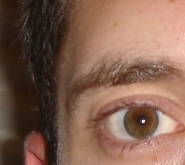A Fine Line, Part 2
Case # 2:
I had another topic that I was planning to introduce for Case #2, but I think it’s only appropriate in a series discussing the differences between revenge and justice to discuss the history of Simon Wiesenthal, the legendary Nazi hunter, who died yesterday at the age of 96. Mr. Wiesenthal devoted his life to pursuing the men who were responsible for and took part in the Holocaust, providing information that resulted in the prosecution of over one thousand former Nazis around the world.
If anyone is entitled to revenge, it’s Simon Wiesenthal. Nazis murdered eighty-six members of his extended family during World War II. If that weren’t enough, those that were responsible for those deaths were also responsible for the worst crime perpetrated against the human race…ever. Who can stand up and say that this man’s retribution is immoral or unjustified? Yet, Mr. Wiesenthal stated time and again that he was interested only in "justice, not vengeance." Are we to believe him?
Hearing about Mr Wiesenthal today has helped me to define the difference between revenge and justice. Revenge is a simple instinctive act of anger that we have all experienced. But I think justice is about memory. We all know how short the memories of the collective human race can be. In twenty years we will only have a handful of individuals left that lived during the time of the Holocaust, and without them, who will add the emotional context to the pictures we see in museums and text books? Without those who give the pictures meaning, we see horrors like the genocide in Rwanda and Sudan creeping back into our world. Even within a single generation, and sometimes within a single decade, we begin to loose touch with our memories of tragedies past. We were recently reminded of this when our nation witnessed the lack of preparation for the disaster that followed Katrina’s path through the Gulf Coast region…almost exactly four short years after the events of 9/11.
Those that struggle for justice do so not solely out of anger, but to force our collective consciousness to remember the wrongs that have been done to us, crimes committed, and lives lost. The ultimate hope is that these things can be prevented from happening again, yet that is up to those of us still here and breathing – to take the justice and do something with it.
While the connection between events like the Holocaust and 9/11 with some of the wrongs I experienced after my apartment fire seem…well…non-existent, I think I will try to follow the path of justice. I will try to turn my efforts toward helping others avoid my problems instead of exacting revenge for the sake of satisfaction.
I had another topic that I was planning to introduce for Case #2, but I think it’s only appropriate in a series discussing the differences between revenge and justice to discuss the history of Simon Wiesenthal, the legendary Nazi hunter, who died yesterday at the age of 96. Mr. Wiesenthal devoted his life to pursuing the men who were responsible for and took part in the Holocaust, providing information that resulted in the prosecution of over one thousand former Nazis around the world.
If anyone is entitled to revenge, it’s Simon Wiesenthal. Nazis murdered eighty-six members of his extended family during World War II. If that weren’t enough, those that were responsible for those deaths were also responsible for the worst crime perpetrated against the human race…ever. Who can stand up and say that this man’s retribution is immoral or unjustified? Yet, Mr. Wiesenthal stated time and again that he was interested only in "justice, not vengeance." Are we to believe him?
Hearing about Mr Wiesenthal today has helped me to define the difference between revenge and justice. Revenge is a simple instinctive act of anger that we have all experienced. But I think justice is about memory. We all know how short the memories of the collective human race can be. In twenty years we will only have a handful of individuals left that lived during the time of the Holocaust, and without them, who will add the emotional context to the pictures we see in museums and text books? Without those who give the pictures meaning, we see horrors like the genocide in Rwanda and Sudan creeping back into our world. Even within a single generation, and sometimes within a single decade, we begin to loose touch with our memories of tragedies past. We were recently reminded of this when our nation witnessed the lack of preparation for the disaster that followed Katrina’s path through the Gulf Coast region…almost exactly four short years after the events of 9/11.
Those that struggle for justice do so not solely out of anger, but to force our collective consciousness to remember the wrongs that have been done to us, crimes committed, and lives lost. The ultimate hope is that these things can be prevented from happening again, yet that is up to those of us still here and breathing – to take the justice and do something with it.
While the connection between events like the Holocaust and 9/11 with some of the wrongs I experienced after my apartment fire seem…well…non-existent, I think I will try to follow the path of justice. I will try to turn my efforts toward helping others avoid my problems instead of exacting revenge for the sake of satisfaction.


0 Comments:
Post a Comment
<< Home